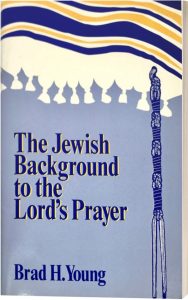Welcome to En-Gedi…
 Featured Article: (from Lessons from the Land)
Featured Article: (from Lessons from the Land)
Living Water Flowing
by Lois Tverberg
“If anyone is thirsty, let him come to Me and drink!” (John 7:37)
Living water is one of the many physical images used in scripture to express spiritual truth. We as Westerners don’t usually recognize the significance of the Hebraic use of imagery, and we miss them.
The image of living water is known around the Middle East, where water is scarce and precious. In biblical times, when rain fell after months of clear skies, it was considered a miraculous gift from God. And, in the dry areas, lush plant life was only found on the banks of rivers. From this arose the idea of mayim chaim (MY-eem KHY-eem), life-giving water from the heavens or from a natural spring.
 .
.
This image recurs from Genesis to Revelation, strongly associated with the presence of God. In Jeremiah it says, “Those who turn away from you will be written in the dust because they have forsaken the LORD, the spring of living water” (Jeremiah 17:13). From Eden, where God dwelled with man, a river welled up that formed four mighty rivers (Genesis 2:10). In Revelation, the river of life flows out from under the throne of God (Revelation 22:1). So, when Moses struck the rock on Mt. Sinai to yield water it would have made sense to the people, because if God was present on Mt. Sinai, water should miraculously flow from that mountain too.
By understanding the imagery of the scriptures, we can hear God’s word better. We hope you will be refreshed by having a little drink of living water with us each day!
We’re pleased to be able to share this difficult-to-find classic by Brad Young. Check it out!
The Jewish Background to the Lord's Prayer
by Brad H. Young
© 1984, Gospel Research Foundation Inc.
Softcover, 46 pages, $8.99
- Explore the Jewish roots of the Lord's Prayer
- Learn how the Dead Sea Scrolls, rabbinic literature, Jewish prayers, and worship breathe fresh meaning into the revered words of the Lord's Prayer
- Understand Jesus' powerful prayer better in the light of Jewish faith and practice
Dr. Brad H. Young (PhD Hebrew University, under David Flusser) is the founder and president of the Gospel Research Foundation in Tulsa, Oklahoma. He is emeritus professor of Biblical Literature in Judaic-Christian Studies in the Graduate School of Theology at Oral Roberts University. Young has taught advanced language and translation courses as well as the Jewish foundations of early Christianity to graduate students for over thirty years.
Check out what else is available from the En-Gedi Resource Center bookstore too...
